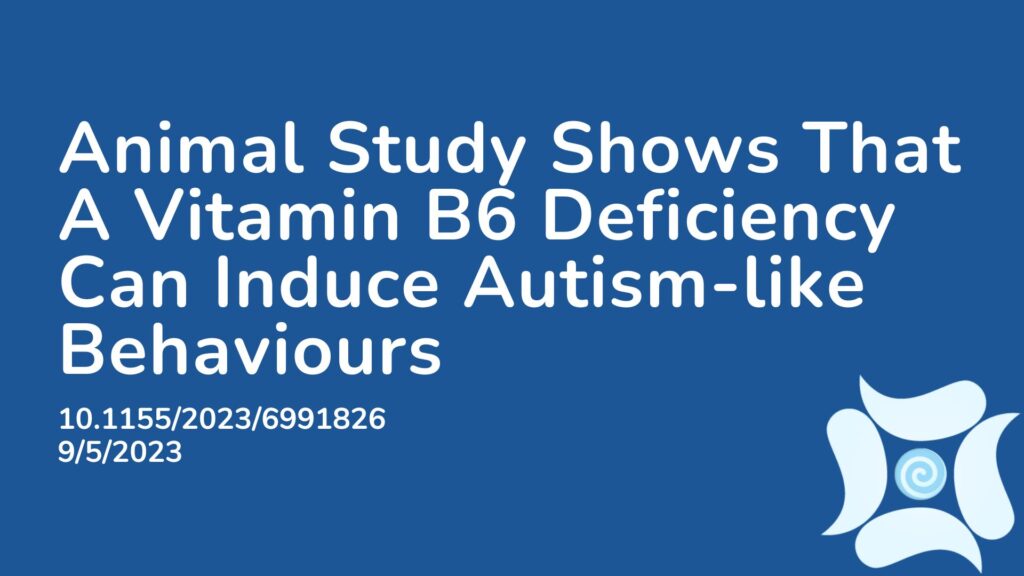Summary:
Autism spectrum disorder (ASD) is a neuro-developmental condition with common characteristics such as impaired social interaction and repetitive behaviors. There is currently no effective treatment for ASD and as a result, it is common for children with this condition to isolate themselves due to poor social adaptability. Literature describes the causes of ASD to be a combination of both genetic and environmental factors. Literature has also shown that vitamin B6 can exhibit therapeutic benefits in ASD, however the mechanism is not well understood. This paper aimed to understand this mechanism by treating mice with vitamin B6. They also looked at mice with vitamin B6 deficiencies. Tests were then conducted to evaluate the impact of vitamin B6 on autism-like behaviors. The results showed that vitamin B6 deficiency impaired social interaction and is associated with disrupted bowel function and decreased concentrations of important brain chemicals which induced autism-like symptoms. In summary, the results showed that a vitamin B6 deficiency can induce autism-like behavior in rats.
Abstract:
Vitamin B6 (VB6) exhibits therapeutic effects towards autism spectrum disorder (ASD), but its specific mechanism is poorly understood. Rat dams were treated with VB6 standard, VB6 deficiency, or VB6 supplementary diet, and the same treatment was provided to their offspring, with their body weights monitored. Three-chambered social test and open field test were employed to evaluate the effect of VB6 on autism-like behaviors. Gamma-aminobutyric acid (GABA) generation and synaptic inhibition of neurons in the hippocampus of rat were detected via immunofluorescence staining, followed by the measurement of GABA concentration through high-performance liquid chromatography (HPLC). The role of VB6 in the autophagy and apoptosis of cells was determined via Western blot and terminal deoxynucleotidyl transferase dUTP nick-end labeling (TUNEL). In order to conduct rescue experiments, the inhibition of mammalian target of rapamycin (mTOR) or the activation of GABA was achieved by drug administration to the offspring rats with VB6 deficiency. As a result, no evident difference in weight was observed in the offspring with varied VB6 treatments. VB6 deficiency impaired social interaction; aggravated self-grooming and bowel frequency; decreased GABA concentration, VIAAT, GAD67, vGAT expressions, and LC3 II/LC3 I ratio; increased p62 level and p-mTOR/mTOR ratio; and promoted cell apoptosis. Inhibition of mTOR reversed the effect of VB6 deficiency on cell autophagy. GABA activation or mTOR inhibition offset the role of VB6 deficiency in autism-like behaviors and hippocampal GABA expression. Collectively, VB6 deficiency induces autism-like behaviors in rats by regulating mTOR-mediated autophagy in the hippocampus.
Article Publication Date: 9/5/2023
DOI: 10.1155/2023/6991826



